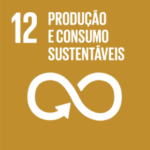
Chefs on Fire. In this festival, leftover food is transformed into energy
Here comes another edition of Chefs on Fire, one of the most important gastronomic festivals in the country. In addition to the sustainability actions that
We didn't find any happenings mapped to your criteria.
Try the traditional search to find articles not yet mapped with RUA.
We didn't find any happenings mapped to your criteria.
Try the traditional search to find articles not yet mapped with RUA.
We didn't find any happenings mapped to your criteria.
Try the traditional search to find articles not yet mapped with RUA.
We didn't find any happenings mapped to your criteria.
Try the traditional search to find articles not yet mapped with RUA.
Tavira joins more than 30 cities in the Plant Based Treaty, a commitment to promote plant-based food options, reduce animal products and support food sovereignty initiatives.
Tavira has become the first Portuguese city to sign up to the Plant Based Treaty, an initiative that aims to put food systems at the heart of the fight against the climate crisis.
By joining, the city of Tavira commits to promoting plant-based food options, reducing animal products and supporting green spaces and food sovereignty projects for all.
The Plant Based Treaty has three fundamental principles: redirect, renounce and restore. Under the “redirect” principle, actions are proposed to actively transition from animal-based to plant-based food systems.
The measures include the inclusion of campaigns and activities that encourage the food transition to plant-based products and meals, in line with the principles of the Mediterranean Diet; the support and development of awareness-raising and information campaigns on the environmental impact and health benefits of plant-based foods; reducing the consumption of animal products and meals in schools and local organizations; and implementing a transition plan to plant-based meals at events and meetings related to the environment and climate action, with a commitment for all catering contracting procedures to comply with the principles of sustainable public procurement, valuing plant-based meals.
The “renounce” principle advocates no change in land use, ecosystem degradation or deforestation for animal agriculture.
The objective of the third principle is to actively restore key ecosystems, especially forests and landscapes, through measures such as supporting and promoting reforestation projects, involving all stakeholders; initiatives to increase the number of trees and wild plants, green corridors and community crops in public spaces; and projects that contribute to food sovereignty, especially for people on low incomes.
Based on the popular Fossil Fuel Non-Proliferation Treaty, the Plant Based Treaty aims to halt the widespread degradation of critical ecosystems caused by animal agriculture, promoting a shift towards healthier and more sustainable plant-based diets, including in cities and institutions.
The Plant Based Treaty provides manuals and guides describing best food practices for early childhood education, universities, retirement homes and athletes, but also tools for recruiting and training new advocates and municipal teams.
The initiative calls on individuals, groups, companies and cities to support this call to action and pressure national governments to negotiate a Global Plant Based Treaty as a complement to the Paris Agreement of the United Nations Framework Convention on Climate Change (UNFCCC). More than 30 cities, 600 global politicians and 2000 companies and groups, such as Greenpeace and Friends of the Earth, have already officially endorsed the Plant Based Treaty.


Here comes another edition of Chefs on Fire, one of the most important gastronomic festivals in the country. In addition to the sustainability actions that

From July 31st to August 4th there will be another edition of the Tradidanças festival, the one that gets everyone of all ages dancing for

Greenpeace opens office in Portugal and brings the icebreaker Artic Sunrise. The organization’s focus will be on fighting fires and protecting biodiversity, especially the oceans.

This article promotes an action that encourages the reduction of waste generation through prevention, reduction, recycling, and reuse.
➡️ To discover more businesses that are aligned with Sustainable Development Goal 12 “Sustainable Production and Consumption” click here.
➡️ For news, tips and interviews about this topic, click here.
➡️ Want to know more about the 17 United Nations Sustainable Development Goals? Click here
Esta publicação também está disponível em:
![]() Português (Portuguese (Portugal))
Português (Portuguese (Portugal))

